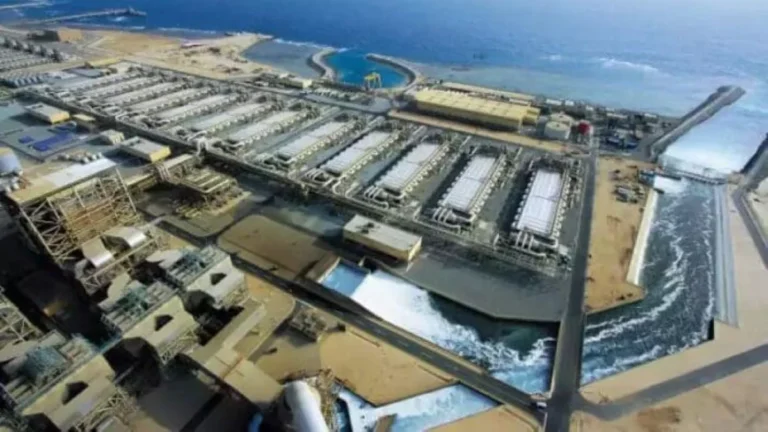Faced with an unprecedented water crisis, Morocco is accelerating its use of seawater desalination. Prolonged drought periods and decreasing rainfall have pushed the country to develop new desalination plant projects, in addition to existing ones, such as the one in Chtouka-Aït Baha. Coastal cities like Casablanca, Safi, and Dakhla will become major hubs for this new infrastructure, with an ambitious goal of producing 1.3 billion m³ of desalinated water per year by 2030.
According to Saïd Guemra, an energy management expert, Morocco has set a desalination target to meet 50% of its drinking water needs, which amounts to 800 million m³/year. However, this strategy faces a major challenge: desalination requires a large amount of energy. With reverse osmosis, the technology primarily used, it takes about 4 kWh to produce 1 m³ of water. As a result, ongoing projects require massive energy capacity.
By 2030, it is estimated that the 10 developing plants will need 1.57 TWh of electricity per year, translating to a renewable capacity of between 450 MW and 900 MW. Fortunately, Morocco has renewable energy resources, particularly through its solar and wind farms, such as the Noor complex in Ouarzazate. The ambitious project of an “electric highway” connecting Dakhla to Casablanca, with a capacity of 3,000 MW, will play a key role in meeting the needs of the desalination plants.
However, the synchronization of these projects is crucial. Morocco must simultaneously develop its renewable capacities, build the electric cable, and commission the desalination plants. Any delay or desynchronization could exacerbate the water crisis or leave plants without energy to operate.
Despite these challenges, the future of desalination in Morocco remains promising. With efficient management of renewable resources, the cost of energy needed for desalination could be reduced by 57%, thus easing the country’s energy bill and strengthening its independence from fossil fuels.


